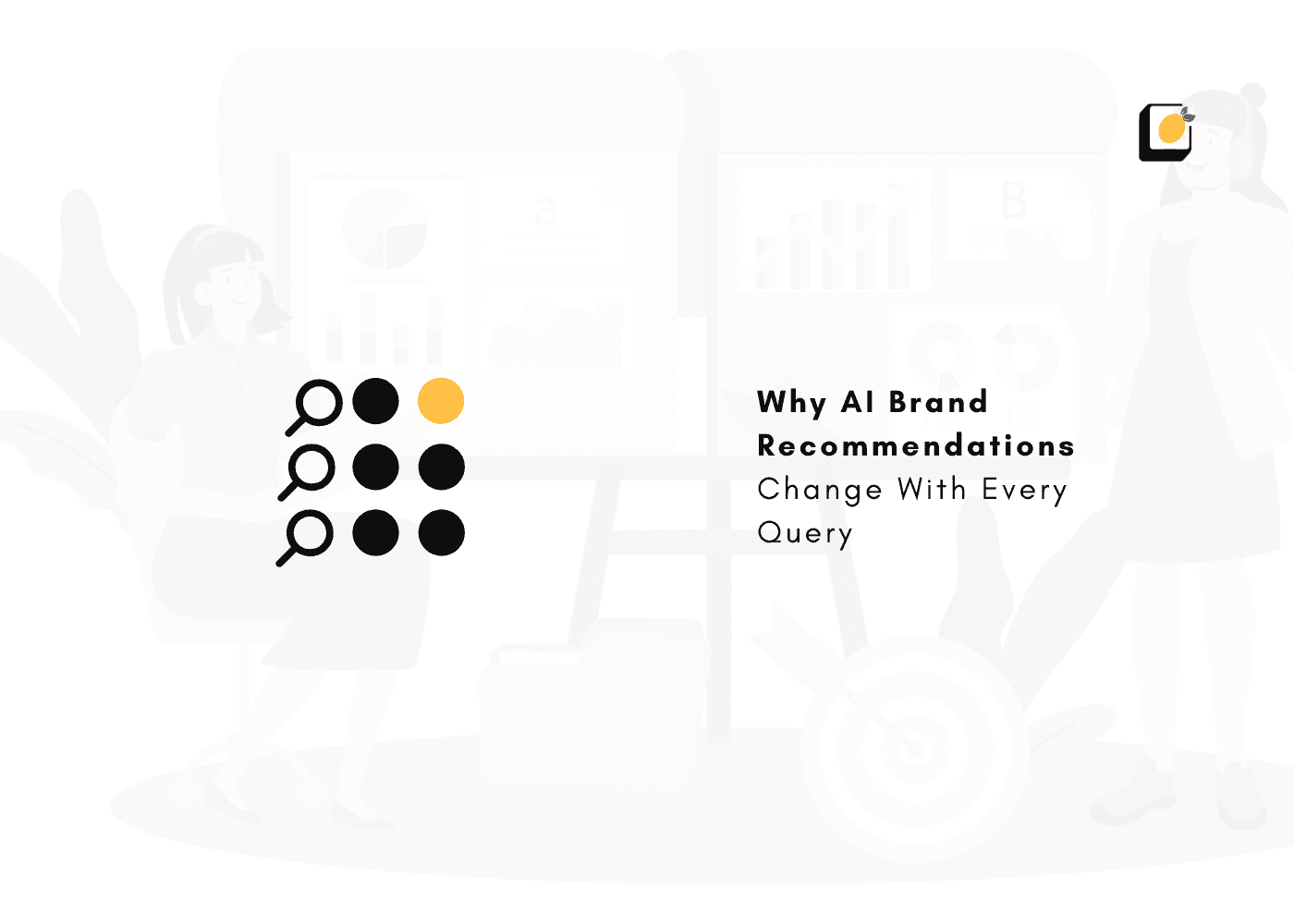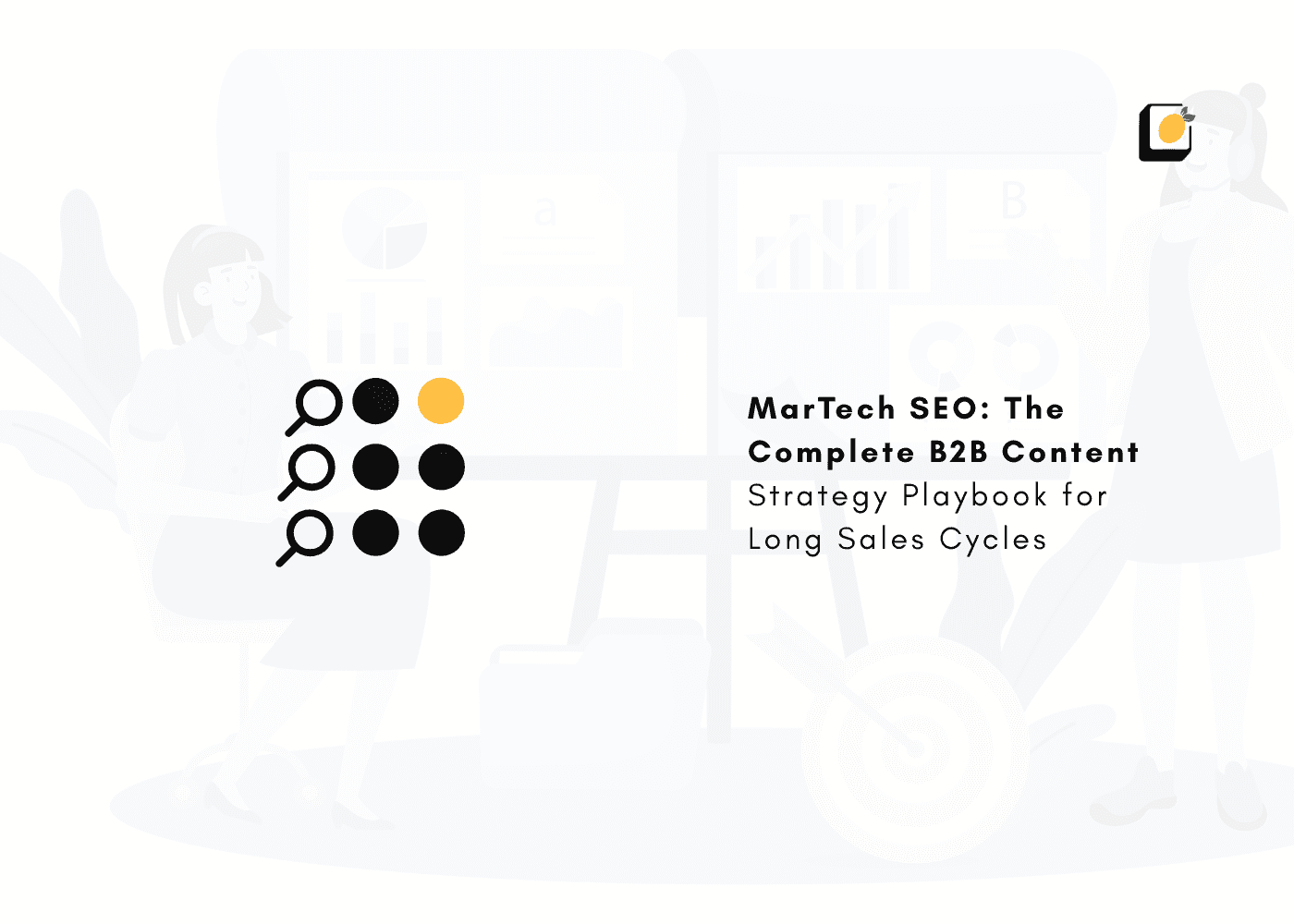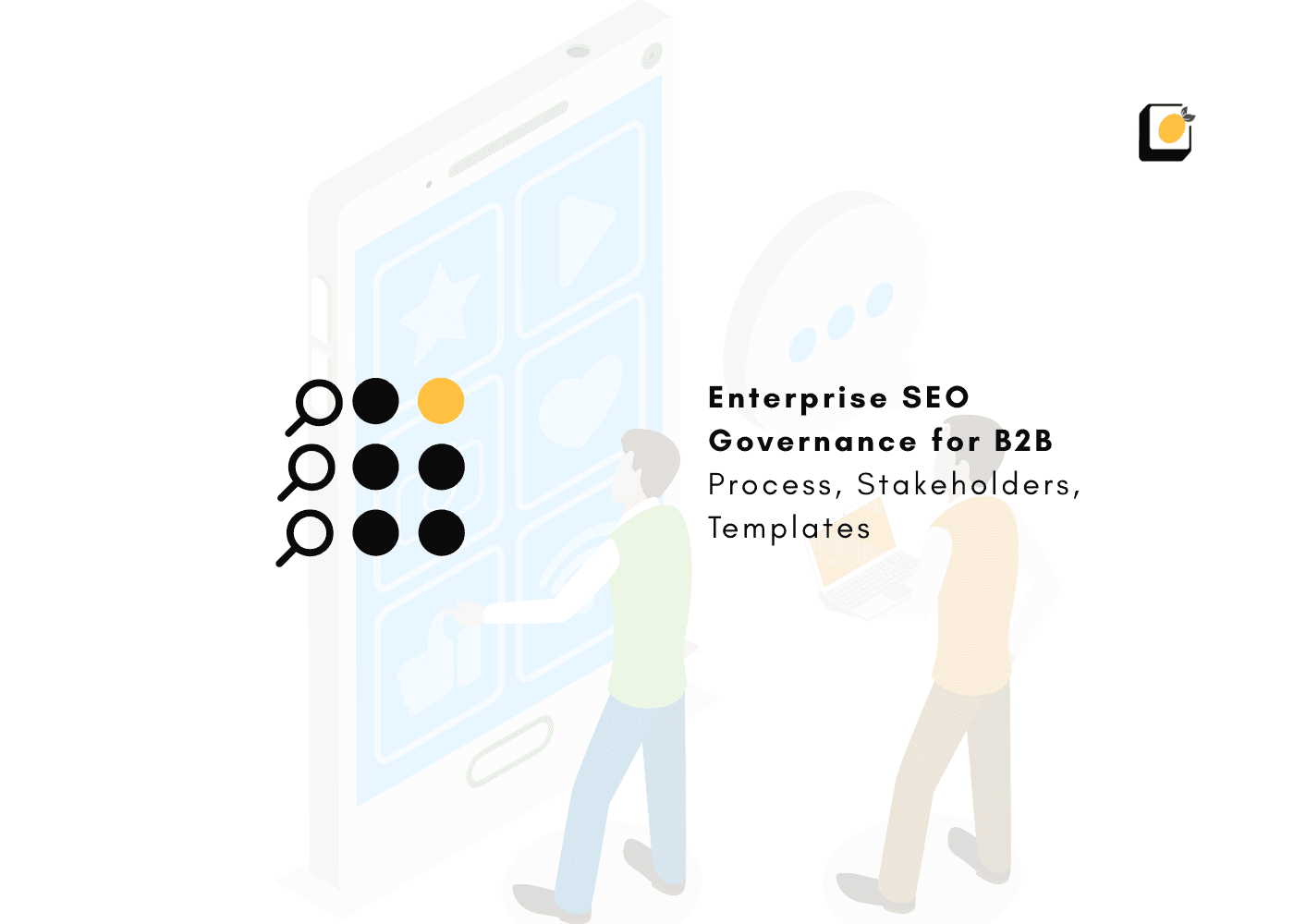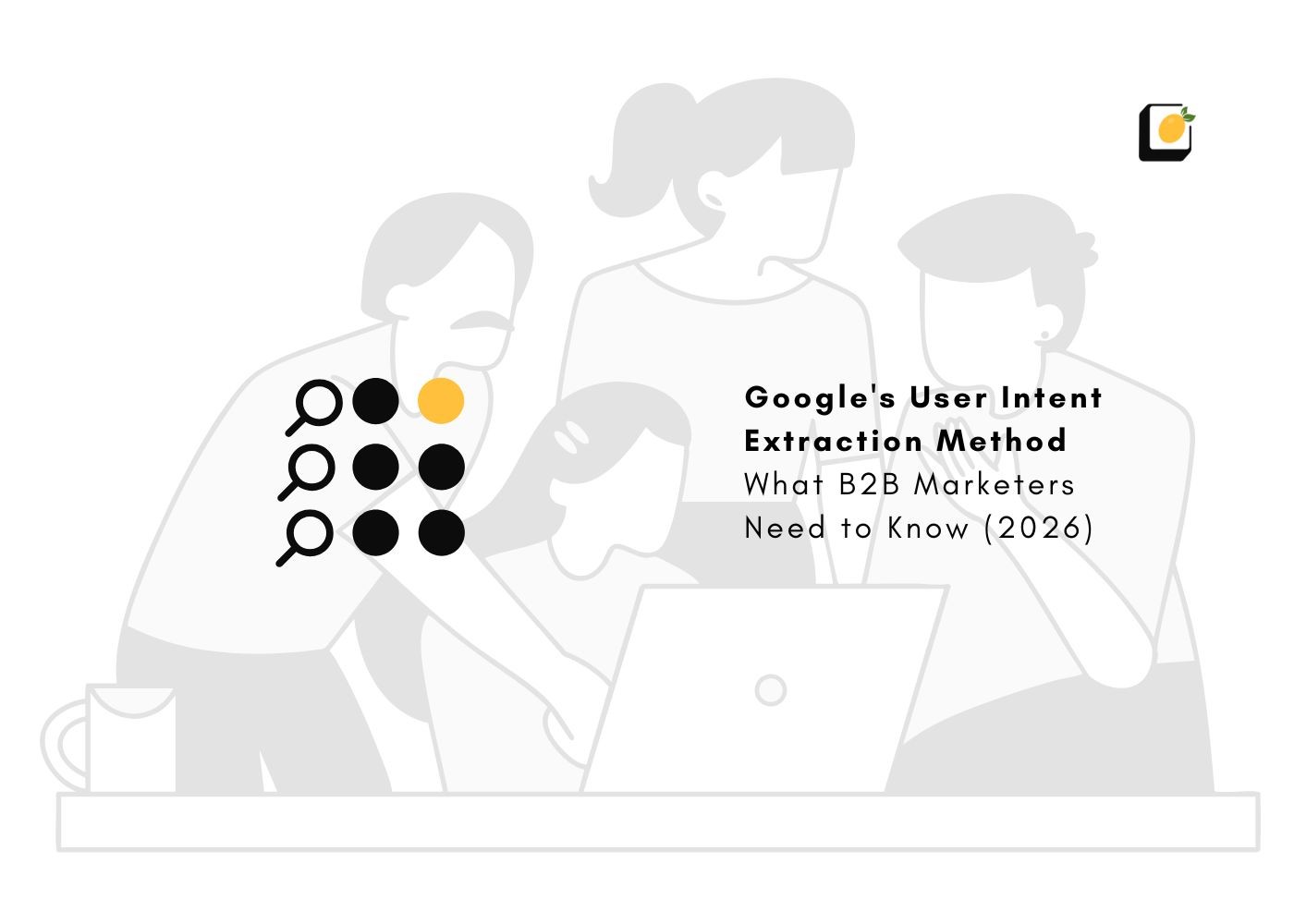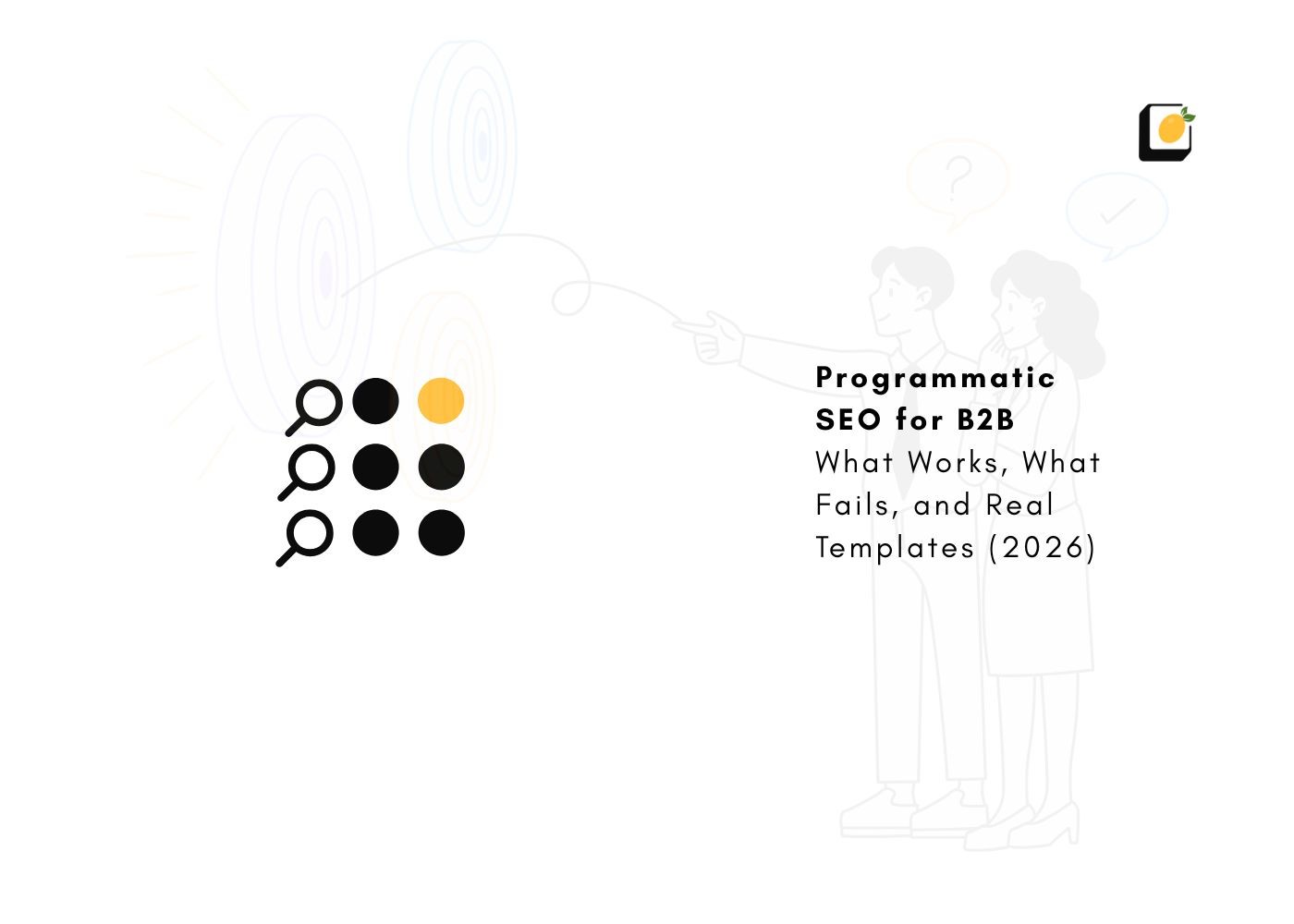The MVP’s Guide to SEO
August 22, 2025
Join 500+ brands growing with Passionfruit!
TLDRs
Start with SEO basics early: keyword research, clean URLs, technical health.
Use free SEO tools for efficiency and scalability.
Keep strategies lean, focusing on quick learnings.
Scale to a full strategy after product-market fit to leverage early authority.
When you’re building an MVP (Minimum Viable Product), every hour and dollar counts. You’re testing assumptions, finding product-market fit, and iterating rapidly. SEO often gets pushed aside during these early stages because founders think it requires heavy investment. But here’s the truth: a lean, strategic approach to SEO during MVP development sets your product up for long-term success, without draining your resources.
In fact, according to a HubSpot report, 68% of online experiences begin with a search engine, and businesses that integrate SEO early see 2.5x faster growth than those that delay optimization.
This guide walks you through practical, beginner-friendly SEO tactics that maximize learnings while keeping your effort and budget minimal.
What Is SEO and Why It Matters for MVPs
Search Engine Optimization, or SEO, is the practice of improving your website so it shows up higher in search engine results when someone searches for terms relevant to your business. It combines content quality, technical performance, and user experience to improve visibility organically, no ads required.
Why MVPs Can’t Ignore SEO Basics
Even if you’re not ready to launch a full SEO strategy, ignoring it during your MVP phase is a mistake. Early SEO efforts help you:
Build domain authority: Websites that start building authority early rank faster later.
Capture organic traffic: Even a handful of organic visitors provides data on audience intent.
Avoid costly cleanups: Technical errors fixed early save significant time and cost post-PMF.
A Buxone study found that 91% of content gets no organic traffic, often because basic SEO steps like meta descriptions and internal linking are missing.
Start with Smart Keyword Research
Keyword research is the foundation of a good SEO strategy—even during MVP development.
How to Do SEO Keyword Research in 30 Minutes
Spend just 30 minutes identifying what your audience is searching for.
Quick Steps for Fast Research:
Brainstorm 5–10 key terms related to your MVP.
Use free tools like Google Keyword Planner or Ubersuggest.
Check competitors' ranking keywords.
Note search intent, informational, navigational, or transactional.
Best Free Tools for Keyword Ideas
Google Keyword Planner: Free, reliable keyword volumes.
AnswerThePublic: Generates questions people are asking around your niche.
Ubersuggest: Great for quick competition and CPC analysis.
For a deeper dive, check out Passionfruit’s keyword tools guide.
Using Keyword Explorer Tools Effectively
Use keyword explorer tools to:
Analyze search volume vs. competition.
Identify long-tail variations (e.g., "AI search platform for startups" vs. "AI search").
Build a focused list of 10–15 target keywords to start.
Quick Wins with On Page SEO
Basic On Page SEO Checklist for MVPs
Getting on-page basics right boosts visibility quickly.
Element | Best Practice |
Title tags | Include primary keyword naturally |
Meta Description | 150–160 characters with a call-to-action |
URLs | Short, keyword-friendly, and descriptive |
Headers (h1, h2) | Use structured headings for readability |
Alt Text | Add descriptive alt text to images |
Optimize Titles, Meta Tags & URLs
Instead of “Welcome to Our Page”, use “AI Workflow Automation Tool | Fast, Simple, Scalable.”
Keep URLs clean:
yourdomain.com/keywordinstead ofyourdomain.com/page?id=123.
Fix the Tech Stuff Before SEO
Simple Technical SEO Tasks You Can’t Skip
A technically sound site ensures search engines can crawl and index your pages. Start with:
Mobile-friendliness (responsive design)
Page speed optimization (compress images, minify code)
HTTPS implementation
Submitting a sitemap to Google Search Console
According to Google, mobile-friendly websites are prioritized in ranking, and improving page speed by 1 second can increase conversions by up to 7%.
Tools to Help You Crawl and Analyze
Screaming Frog – For deep crawl audits
Google Search Console – To monitor indexing and site health
Moz Pro – For site audits and error tracking
Check out Passionfruit’s technical SEO guide for more details.
Use the Right SEO Tools to Save Time
Top Free and Paid SEO Tools for MVPs
Tool | Use Case | Cost |
Google Search Console | Site performance and indexing | Free |
Moz Bar | Quick on-page checks | Free |
Ahrefs Webmaster Tools | Backlink and keyword tracking | Free |
SEMRush | Advanced keyword and competitor analysis | Paid |
How to Use Moz Bar and Moz Pro
Moz Bar: Install this Chrome extension for instant data like page authority and keyword density.
Moz Pro: Great for weekly crawls and ranking reports during iterative MVP cycles.
Keyword Tracking with Moz Keyword Explorer
Monitor your target keyword positions and track progress as you publish content and optimize your MVP landing pages.
Create a Simple Yet Powerful SEO Strategy
When your product is still in the MVP stage, your SEO approach should be lean but intentional. You don’t need a 30-page plan or a full-scale content pipeline to see value. What you need is a framework that builds a foundation for growth while giving you measurable learning opportunities.
Why Your SEO Plan Should Stay Simple
The goal during MVP isn’t to dominate search engines overnight, it’s to collect actionable insights and build long-term visibility while staying within your time and budget constraints. A focused plan prevents you from burning resources on unnecessary complexities and helps you adapt as your product and audience evolve.
Priority | Action | Why it Matters | Effort Level |
Site Health | Optimize technical basics (speed, mobile, indexing) | Builds a crawlable, scalable base | Low |
Content | Publish 3–5 keyword-aligned landing pages or blogs | Tests audience intent early | Medium |
Tracking | Use Google Search Console & Analytics | Monitors visibility and traffic trends | Low |
Iteration | Analyze data and refine approach monthly | Keeps you agile during MVP pivots | Medium |
Define Simple, Measurable SEO Goals
At this stage, clarity matters more than complexity. Set SMART (Specific, Measurable, Achievable, Relevant, Time-bound) goals to ensure you’re working toward milestones that drive learning, not vanity metrics.
Get 10 organic visitors daily: Focus on creating at least one high-quality landing page targeting a primary keyword with low competition. Track visitor volume and session duration to understand early interest.
Rank in the top 50 for at least 3 target keywords: Use tools like Moz Keyword Explorer or Google Search Console to identify where your pages stand. Reaching the top 50 early signals that your technical setup and keyword targeting are on point.
Collect engagement data for future scaling: Analyze what users do after landing on your site. Are they signing up, clicking CTAs, or bouncing? These insights help refine messaging, improve content relevance, and plan larger campaigns post-PMF.
Keep Your Focus Narrow
The temptation to target dozens of keywords and write endless blog posts is strong, resist it. Start with a small keyword cluster (5–10 terms), build pages around them, and iterate based on performance data. This narrow focus ensures quicker results and cleaner learnings.
Create an MVP SEO Workflow
Week 1: Fix technical basics, set up Google Search Console, check page speed, and submit your sitemap.
Week 2: Identify 5–10 low-competition keywords and create landing page content.
Week 3: Optimize on-page elements (titles, meta tags, URLs, internal linking).
Week 4: Start tracking performance and gather early insights to adjust strategy.
How SEO Marketing Fits into Your Launch
Combine early SEO basics with complementary tactics like lightweight PPC or social promotion to validate messaging while building organic authority.
Track Your SEO Progress with Google Metrics
How to Check Google Keyword Rankings
Use Google Search Console or tools like SEMrush and Ahrefs to track keyword positions. Check weekly during MVP to measure impact.
Improve Your SEO Ranking with Small Tweaks
Update content regularly
Build internal links to high-priority pages
Improve Core Web Vitals (speed, usability)
Keep SEO Lean: Measure, Learn, Repeat
Use Feedback to Iterate Your SEO Plan
Treat your SEO like an MVP itself:
Implement basic tactics.
Track performance.
Iterate based on learnings.
Avoid Over-Optimizing Early On
Don’t waste hours obsessing over minor details. Scale advanced efforts like link-building and large-scale content once you’ve validated your product-market fit.
FAQs
Q1. What’s the Minimum SEO Setup for a Launch?
Set up Google Search Console, create keyword-optimized titles, add meta descriptions, and ensure your site is crawlable. Even these basics help you track early visibility and user behavior, giving you actionable data to guide future optimization.
Q2. How Often Should I Update My SEO Strategy?
Revisit your progress monthly, refining keywords and technical fixes as your traffic and feedback evolve. A monthly review helps you stay agile and adjust your approach based on what’s working, especially if you’re iterating your MVP quickly.
Q3. Can I Do SEO Without a Big Budget?
Yes. Focus on free tools like Google Keyword Planner, Google Search Console, and Moz Bar. Prioritize content quality and technical health before paid upgrades. Leverage organic tactics like content repurposing and internal linking to maximize results without increasing costs.
Q4. How Long Does It Take to See SEO Results for an MVP?
Most MVPs start noticing small traffic improvements in 4–6 weeks, with better results appearing after 3–6 months. Remember, consistency is key—steady updates and incremental optimizations speed up your path to measurable growth.
Q5. Should I Outsource SEO During the MVP Stage?
Not necessarily. You can manage the basics in-house during early development using beginner-friendly tools. Outsourcing makes sense when you’re ready to scale beyond basics, like building a robust content strategy or managing complex technical SEO.


